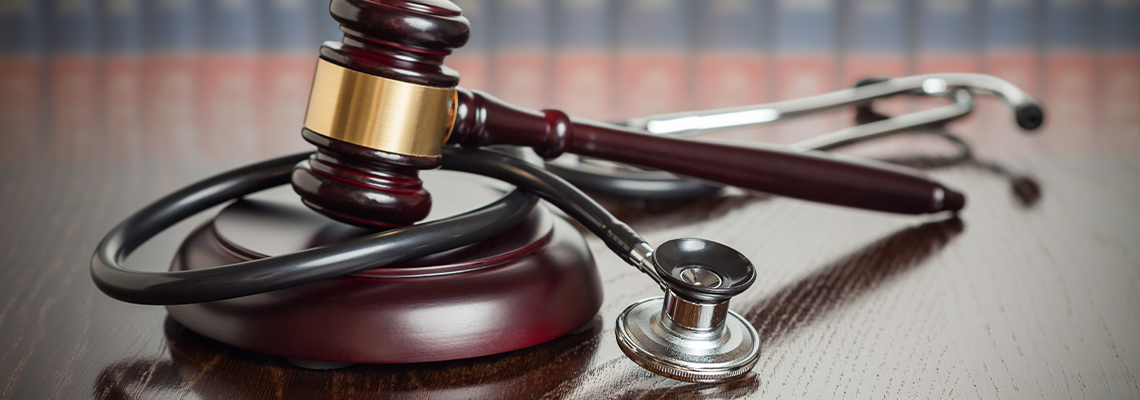
Why Are Expert Witnesses Crucial in Medical Malpractice Lawsuits?
When a medical malpractice lawsuit arises, the details often hinge on technical medical facts that the average person might not understand. We rely on knowledgeable witnesses to clarify these details, interpret procedures, and explain the standard of care. Their input can significantly affect how a case is understood and ultimately decided.
At Mook Law Firm LLC, we work with individuals and families in Kansas City, Missouri, and surrounding communities to handle medical malpractice claims and protect their rights. Our founding attorney, Ben Mook, focuses on providing personalized guidance and support, helping clients understand the legal process and the options available in pursuing a malpractice lawsuit. Contact us today.
Explaining Medical Procedures and Standards
Medical procedures are intricate and vary depending on the condition, patient history, and medical setting. In a lawsuit, it’s critical to demonstrate whether the care provided met standard practices or deviated in a way that caused harm. Witnesses play a crucial role in describing what actually happened.
They can break down the sequence of care, making it understandable for a jury or judge who lacks medical training. This step-by-step explanation allows us to present a case with clarity and authority, supporting our position effectively.
For example, in a surgery-related malpractice case, a witness can describe how a routine procedure is typically performed, what went differently, and how those differences contributed to a patient’s injury. By drawing attention to these nuances, they help the court grasp the relevance of seemingly minor details.
Interpreting Medical Records
Medical records are essential in any malpractice lawsuit, but they’re often dense and full of medical terminology. Witnesses review these records to identify critical points that may otherwise be overlooked.
They can:
Highlight errors or omissions in documentation
Explain abnormal test results or imaging findings
Clarify the timing and sequence of treatment
By reviewing and interpreting records, they allow us to build a comprehensive narrative of the care provided. This clarity is essential in helping a jury see the connection between the medical actions taken and the harm suffered.
Assessing Cause and Effect
Proving causation is central to a malpractice lawsuit. It’s not enough to show that an injury occurred; we must establish that the injury directly resulted from medical care or the lack of proper treatment. Witnesses evaluate whether the harm was a direct outcome of a provider’s actions.
They analyze:
The chain of events leading to the injury
How alternative actions might have prevented harm
The medical reasoning behind each decision
This analysis provides the court with a clear understanding of cause and effect, helping us demonstrate the link between provider actions and patient outcomes.
Supporting Opinions With Evidence
Witnesses don’t just offer opinions; they back their assessments with solid evidence. Their conclusions often rely on peer-reviewed studies, professional guidelines, and similar case outcomes.
This evidence-based approach strengthens a malpractice lawsuit by:
Validating our interpretation of the care provided
Highlighting deviations from commonly accepted practices
Offering objective support to subjective observations
Presenting testimony with evidence makes our arguments more credible and helps the court understand why the care given did or didn’t meet medical standards.
Strengthening Testimony in Court
When a malpractice lawsuit reaches trial, testimony can significantly influence the outcome. Witnesses clarify technical details, counter opposing claims, and present medical facts in a structured, understandable way.
Their presence does more than explain procedures; it reinforces the credibility of the case. A clear, organized presentation of medical facts allows jurors and judges to follow the reasoning behind our claims, improving their ability to make informed decisions.
Evaluating Treatment Decisions
Witnesses can assess the decisions made by medical providers throughout the course of treatment. They review what options were considered, what actions were taken, and whether alternative approaches might have produced better outcomes.
By analyzing treatment decisions, they provide information about whether care met accepted standards. This assessment is often pivotal in a malpractice lawsuit, particularly when there are multiple ways to treat a condition. Understanding the reasoning behind provider decisions can clarify whether harm was avoidable.
Explaining Standard of Care Deviations
A key factor in any malpractice lawsuit is whether a provider’s actions deviated from the standard of care. Witnesses explain where and how such deviations occurred and what impact they had on the patient’s health.
They can:
Identify overlooked precautions
Point out unnecessary procedures or omissions
Explain consequences of delayed interventions
By illustrating these deviations clearly, we can demonstrate whether the provider breached their duty of care. This information is critical for the court to assess liability accurately.
Clarifying Prognosis and Long-Term Effects
In many cases, injuries from medical errors have lasting consequences. Witnesses provide context for the long-term impact, including complications, ongoing treatments, and recovery expectations.
This information helps the court understand the full extent of the harm caused. It also informs discussions about damages in a malpractice lawsuit, making sure that potential compensation reflects the actual impact on the patient’s life.
Reviewing Testimony From the Other Side
Opposing parties often present their own witnesses in a malpractice lawsuit. We rely on knowledgeable witnesses to critically assess and respond to these claims.
This includes:
Highlighting inconsistencies in testimony
Identifying gaps in evidence
Countering alternative interpretations of medical records
Being able to challenge opposing testimony is essential for maintaining the strength and credibility of our case. Accurate, informed responses prevent the defense from dominating the narrative.
Preparing Written Reports
Before testimony, witnesses often prepare written reports summarizing their analysis and conclusions. These reports outline opinions, highlight evidence, and provide a reference during depositions or trial.
A well-prepared report helps us organize information and present it clearly. It also allows the court to review technical details in a structured format, supporting the overall strength of the malpractice lawsuit.
Collaborating With Medical Reviewers
Witnesses sometimes collaborate with other medical professionals to verify their conclusions. This collaboration makes sure that assessments are accurate, well-founded, and credible.
Peer review strengthens the case by confirming that interpretations are consistent with accepted practices. Collaborative verification adds weight to our claims and can influence the outcome of a malpractice lawsuit positively.
Providing Clarity for Juries
Medical testimony can be difficult for juries to understand without interpretation. At Mook Law Firm LLC, we rely on knowledgeable witnesses to translate medical procedures, terminology, and results into language that’s accessible to laypeople.
This clarity is essential in a malpractice lawsuit. By breaking down technical information into understandable terms, we help jurors focus on the key issues and make informed decisions about liability and damages.
Supporting Settlement Discussions
Even outside of trial, testimony and reports from witnesses can influence settlement negotiations. Their findings can highlight the strengths of a case or identify areas that need clarification.
This allows us to approach settlements realistically. Informative testimony provides a factual basis for negotiation, helping the parties arrive at a resolution that reflects the merits of the case and the potential outcomes if it went to trial.
Highlighting Systemic Issues
Sometimes, malpractice lawsuits reveal broader issues within a medical practice or healthcare facility. Witnesses can identify patterns or repeated lapses in care that might have contributed to the incident.
By highlighting these systemic issues, we can support claims that go beyond a single error. This information can affect both the strategy for the lawsuit and the overall assessment of liability.
Educating Clients About the Process
A malpractice lawsuit can be overwhelming for clients. Witnesses’ findings allow us to explain the situation in concrete terms, showing why certain steps are necessary and how medical decisions affected outcomes.
This education helps clients understand their case, the evidence supporting it, and the reasoning behind settlement or trial strategies. Clear communication is critical for maintaining client confidence and trust throughout the process.
Witnesses play a crucial role in medical malpractice lawsuits. They clarify procedures, interpret records, evaluate causation, and explain deviations from standards of care. Their analysis strengthens testimony, supports settlements, and provides clarity for the court.
By integrating their information throughout a case, we can present a clear, organized, and persuasive argument. A malpractice lawsuit becomes far more credible when it relies on detailed, informed observations that connect medical care to patient outcomes.
Contact Our Firm Today
In medical malpractice lawsuits, knowledgeable witnesses provide critical clarity and credibility, helping the court understand medical procedures, causation, and standards of care. Their perspective makes it possible to present a strong, well-supported case that reflects the full impact of medical negligence.
We serve clients across Kansas City, including Jackson County, Missouri; Clay County, Missouri; Platte County, Missouri; and Johnson County, Kansas. Contact Mook Law Firm LLC today to discuss your case.

